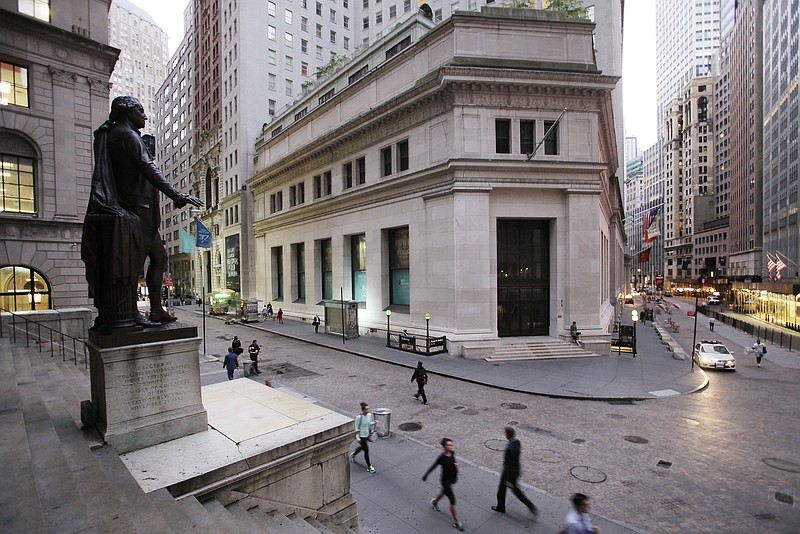Middle-class wage stagnation is the biggest economic fact driving American politics. Over the past many years, so the argument goes, capitalism has developed structural flaws. Economic gains are not being shared fairly with the middle class. Wages have become decoupled from productivity. Even when the economy grows, everything goes to the rich.
This account of reality, which I've certainly repeated, explains why the Democratic Party has moved from the Bill Clinton neoliberal center to the Bernie Sanders left. It explains why the Republicans have moved from the pro-market Mitt Romney right to the populist Donald Trump right.
On both left and right, movements have arisen to fix capitalism's supposed structural flaws, either by radically interfering in the marketplace (Bernie) or by clamping down on global competition (Trump).
But what if there are no structural flaws? What if the market is working more or less as it's supposed to?
That's certainly the evidence from the last two years. Over this time, the benefits of economic growth have been shared more widely.
In 2015, median household incomes rose 5.2 percent. That was the fastest surge in percentage terms since the Census Bureau began keeping records in the 1960s. Women living alone saw their incomes rise 8.7 percent. Median incomes for Hispanics rose 6.1 percent.
The news was especially good for the poor. The share of overall income that went to the poorest fifth increased 3 percent, while the share that went to the affluent groups did not change. In that year, the poverty rate fell 1.2 percentage points, the steepest decline since 1999.
The numbers for 2016 have just been released by the Census Bureau, and the trends are pretty much the same. Median household income rose another 3.2 percent, after inflation, to its highest level ever. The poverty rate fell some more. The share of national income going to labor is now rising, while the share going to capital is falling.
In a well-functioning economy, workers are rewarded for their productivity. As output, jobs and hours worked rise, so does income. Over the past two years, that seems to be exactly what's happening.
The evidence from the past two years strongly supports those who have argued all along that income has not decoupled from productivity. A wide range of economists have produced studies showing wages tracking very predictably with productivity.
The problem of the middle-class squeeze, in short, may not be with how the fruits of productivity are distributed, but the fact that there isn't much productivity growth at all. It's not that a rising tide doesn't lift all boats; it's that the tide is not rising fast enough.
If productivity itself is the problem, not distribution, radically different politics is demanded than we're seeing today. If productivity is the problem, we need more dynamism, not less, more openness, not less, more growth-oriented policies, not more dirigiste and redistributive ones.
There are a few things government can do to help boost productivity: Increase market competition with more antitrust enforcement and fewer licensing regulations; admit more skilled immigrants; invest more in human capital; deregulate urban land usage back to the 2008 levels; introduce more market incentives into the low productivity sectors, like health care and education; fund more research into promising technologies like new energy storage systems.
Today politics is polarizing to the populist left and the populist right. But if productivity is the problem, what we actually need is a resurgence of the moderates.
Moderate Republicans can argue that while government should be active in boosting human capital, and in helping rural America, most of what's needed is more dynamic capitalism - more trade, more immigration, more free competition, fewer regulatory burdens, more growth.
Right now moderates are in retreat. The populist extremes are on the march. But the fact is they are basing their economic and political agendas on a story that is fundamentally untrue.
The New York Times
